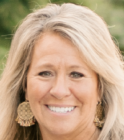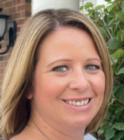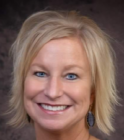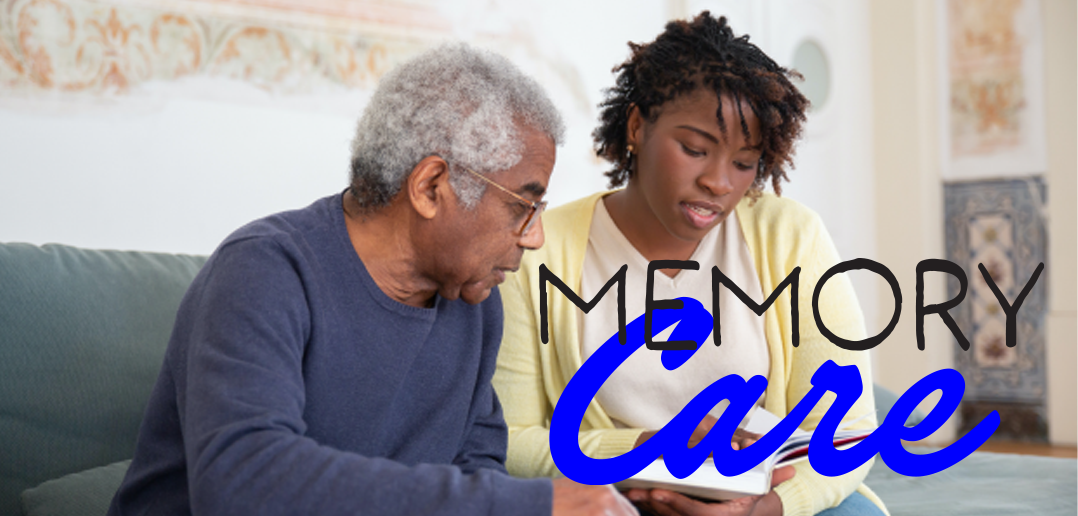Seeing an older loved one experience the challenges of memory loss comes with a lot of emotions. If you’re their primary caregiver, it can be difficult to handle without proper training and education. Getting extra help in the home or fully transferring to a senior care facility are two great options for those finding themselves struggling to keep up with their loved one’s care.
Memory loss is a scary and uncomfortable condition to experience, both as the individual and as the caregiver. It takes a lot of research and trust to find the perfect place for your loved one and their needs, but there are many wonderful places and services available for every level of care.
The First Step
Oasis Senior Advisors can make finding the right memory care facility simple. Oasis examines your options and can help you determine the best solution for your loved one and your family as a whole. Owner Beth Friesen is an RN and has devoted the last decade to becoming a dementia expert. She has written a book titled I Love Someone with Dementia… So Why Am I Losing My Mind? Beth has also appeared on The Doctor’s TV Show, as well as Lifetime Television’s Balancing Act to speak on the subject.

Beth Friesen
Oasis Senior Advisors
“While we work with all aspects of the aging process and the need for care, this is where our heart lives,” Beth shared. “Those who love someone with dementia have such an immense need for support, knowledge, and to be cared for themselves. We connect families with various community agencies to assist them with everything form Veterans Benefits and Elder Law, to in-home care and transitioning to assisted living or memory care. When people work with us, we become advocates for the entire family.”
Beth explained that the biggest challenges for seniors with dementia is that often, they are unaware they have deficits at all. This can make them reluctant to receive help from others and can put them in a very unsafe situation, leading to great stress for family members who have concern for their loved one. In addition to this, a well spouse who is caring for someone with memory loss is often under significant stress. Combined with the well spouse’s own physical challenges of aging, statistics show that often times the well spouse will become ill or even pass away before the individual with dementia, due to the intense amount of stress caused.
“Once you have a diagnosis of dementia, we should be your very next call,” Beth said. “We can even come in before that and help you access the necessary medical personnel in order to get an accurate diagnosis. At that point, we can come alongside you and help you make a plan for what lies ahead. When there is a diagnosis of dementia, the three main things we focus on are safety, dignity, and quality of life.”
The Oasis process to find the right place for your loved one starts with a no-obligation consultation that will tell you what to expect and how Oasis will help you. Oasis will then hold an in-depth discussion to identify lifestyle preferences, care needs, location, and financial considerations. They can also help you look into available funding options such as Veterans Aid and reverse mortgages. They will provide a personalized list of the local housing options that will best meet your specific needs, and schedule tours at each community you or your loved one selects. An Oasis senior advisor will even attend the tours with you to mitigate any confusing questions or conversations and make you feel confident in your final choice.
A Variety of Care
When people begin suffering from memory loss we must understand that the senior is going through something unimaginable, but with support, an older adult in this position is still able to rediscover their purpose to relive joyful memories otherwise locked away by developing memory loss. For seniors without nearby family, finding resources isn’t easy, especially if they are left to their own devices in a time that is so confusing and foggy. Tabitha has many different types of care to meet the needs of you or your loved ones.

Megan Novell
Tabitha
“Tabitha exists to fill in the gaps and direct our clients and their families to the right people, places, or services that their current situation requires,” said Megan Novell, administrator at GracePointe by Tabitha. “Memory loss can be debilitating, both to seniors and their loved ones, so senior care experts at Tabitha know a compassionate and collaborative plan of action is essential. We are here for you every step of the way in your aging journey.”
Tabitha offers a full range of memory care services that are completely personalized to the individual. If the person benefits by remaining at home, Tabitha Home Health Care can help by providing compassionate medical assistance that may involve medication management, bathing, or rehabilitation services. Additionally, Tabitha Meals on Wheels can be utilized to lessen the stress of preparing food; this lifeline Lincoln service provides a hot meal and safety and wellness checks 365 days a year, rain or shine.
If assisted living is a consideration, GracePointe by Tabitha, Assisted Living & Memory Care Suites offers older adults a safe and reliable environment. The same is guaranteed for seniors with dementia-related memory loss or Alzheimer’s disease. Leading-edge technology and countless enrichment activities are offered to residents at GracePointe to ensure that seniors in their care continue living joyfully.
When it comes to progressive memory loss diseases, early detection and education is crucial. Family members and caregivers should familiarize themselves with the 10 warning signs and symptoms from the Alzheimer’s Association to best prepare and watch for symptoms of cognitive decline. If these signs and symptoms begin presenting themselves more often, seeking expert guidance and having difficult conversations with the older adult may be necessary to lessen future stress and guarantee affairs are in order while the older adult still feels present in their decisions.
Specialized In-Home Care
If you are looking for in-home care options, Visiting Angels offers specialized dementia and Alzheimer’s care. They strive to help you or your loved one maintain your independence while remaining in your home.

Julie Day
Visiting Angels
“Visiting Angels focuses on meeting the client where they are,” explained Client Care Coordinator Julie Day. “We educate our caregivers on their client’s needs and develop an individual plan for each client. Quality of life for some clients may be a very busy day with activities and goals for the day. For other clients it may be important to be a friend and companion while providing assistance with basic needs and reminiscing with them. Again, we rely on good communication with clients and their families while we accompany each of them on their journey.”
Julie recommends giving Visiting Angels a call as soon as you are considering looking into home care. It is beneficial to have a familiar caring team in place ahead of time. When the needs go from occasional visits, transportation, or companionship to more necessary things such as personal care assistance, you will already have a resource and caregivers that you know and trust available to you. These caregivers can also keep an eye on your loved ones memory health, which can sometimes go unnoticed to a family member only checking in every so often.
“Sometimes the family is the last to recognize changes in their loved one because those changes are so gradual,” said Julie. “Your loved one is also very good at hiding the fact that they are not taking their medications regularly, eating good meals, or showering. Asking them if they are doing these things is not sufficient – you have to check on them and observe their surroundings. Look for medications that haven’t been taken or get misplaced. If your loved one is not changing their clothes, it might be an indication they’re not showering. Check their refrigerator for food that has expired; they may be eating expired food because they don’t know any better.”
A common challenge for seniors with memory loss, Julie explained, is taking medications regularly and on-time and eating nutritious meals. Visiting Angels’ caregivers are able to keep clients on track with medications and regular meals, and can offer companionship throughout it all.
Meeting You Where You’re At
Some of the biggest challenges family members and friends can face when their loved one has memory loss, Alzheimer’s, or dementia are resources for help and asking for help. There are many different paths that dementia can take and to be better prepared is to utilize available resources and educate family members. Hospice is for end of life care, however many do not realize that this is an option for those experiencing memory loss as well through ProMedica Hospice.

Melinda Pike
ProMedica Hospice
“Our Hospice Team attends required dementia training on hire and annually. Our hospice team will meet the individual ‘where they are at’,” said ProMedica nurse Melinda Pike. “The additional support our team provides with education, spiritual, and emotional support is an important factor as well. We all work together to meet the needs that are appropriate for this individual.”
As the days become shorter and colder, it is a good reminder to keep your loved one on their daily routine. We all thrive on routine, especially those with memory loss, and this time of year can be challenging. Holidays and family gatherings may be overwhelming as well. Remember not to seclude yourself, the caregiver, from your family and friends. Ask your care team and support system to stay with your loved one while you visit outside of the home with family, run errands, or if you need assistance with household duties.
“Each person is unique in their own journey, especially with memory loss. Follow that journey with them to ensure they are safe, cared for, loved, and respected. Even if they don’t remember your name, they will remember the love and compassion,” Melinda said.
Getting Ready for Difficult Seasons
Most people will become caregivers, or need one, at some point in their lives. We know that cognitive and memory impairments can change how a person thinks, acts, and feels. These changes often present special challenges for families and caregivers. They may need help with activities of daily living, such as bathing, assistance with dressing, transferring from bed to a chair or wheelchair, toileting, or other personal care. This is where extra care or support is needed. If family doesn’t live close then they may need to hire outside services to come in and assist with care and companionship.
At Caring Friends In Home Care, they are there to help assist with daily needs. Their caregivers encourage participation and engagement as much as possible. This is what they call collaborative caregiving. The goal is to develop a relationship with clients and help keep them physically and mentally active.
Caring Friends believes in-home care is more than just completing tasks on a list — they offer personalized care that helps clients enjoy their time and improve their quality of life. By focusing on collaborative caregiving, Caring Friends can elevate the quality of clients and their families’ lives.

Jill Strouf, LPN
Caring Friends In Home Care
“With the fast-approaching holiday season upon us, we know that this time of year is all about spending a great time with family and friends, enjoying great food, and creating memories,” said Jill Strouf, LPN, Caring Friends case manager. “Although the season can be joyous for most of us, many seniors may find the holiday season confusing, hectic, and even depressing based on their health conditions. The season tends to carry several changes to daily routines and these shifts can make seniors stressed out too.”
The good news is that we can help and support our loved ones in overcoming these conditions by following some helpful tips from Jill like including your family member in the holiday event or meal planning, making some of their favorite meals using their recipes, guiding a life review by looking at family photo albums, reviving old family traditions, and keeping your loved one involved.
Never Miss a Medication
Finding the right care for you or your loved one is important, but treatment and health care for older adults often also requires medication, which can be a difficult thing for a person experiencing memory loss to keep track of. Nebraska LTC Pharmacy has services in place to help customers with a vast majority of needs stick to their important medicine regimes.

Shannon Schultz
Nebraska LTC Pharmacy
“From a pharmacy perspective, people struggle to remember to take their meds. This can obviously be very detrimental to managing their health care, which can then further lead to not being allowed to remain in their home,” shared Shannon Schultz, owner of Nebraska LTC Pharmacy. “Many seniors are lucky enough to have close family members that serve as the person in charge of medications, and can help with medication set up. Some people aren’t as fortunate, and don’t have anyone to help with this. This is where I can come in!”
Nebraska LTC Pharmacy provides free weekly blister packaging and delivery. The packaging helps people remember to take their medications because it is a visual reminder that they can look at throughout the day. They provide this service to those in their homes, as well as those who are in independent living communities. Providing a week of medication at a time is also much more manageable for someone who may be forgetting or feeling overwhelmed with many prescription bottles sitting around. They don’t have to worry about which ones they need to take at which times of day as that is all in the blister packs. This also removes the possibility of double dosing, or taking meds they aren’t supposed to be taking anymore.
“We typically see people forgetting a dose here or there. This often triggers a cascade of forgetfulness when it comes to taking meds. Family members should look at the bottles to see when they were last filled at the pharmacy,” said Shannon. “Should there be that many pills left in the bottle in correlation with when they were picked up from the pharmacy? Does their health seem to be slipping from not taking their medications? Are they falling more than they had been previously?”
Nebraska LTC Pharmacy offers a delivery service which can be crucial for seniors unable to drive or safely leave their home alone. They will call your doctor when you or your loved one’s medications are running low, and will communicate for you while being your advocate. They provide a high level of care that is much more detailed than the typical retail pharmacy, and will remove every stressor so family members can rest assured their loved ones are in good hands.
You can trust Nebraska LTC Pharmacy to get you or your loved one the medications you need, when you need them. Eliminate the added stress that organizing medications can bring, and focus on the comfort and happiness of your family during this new stage of life.
Maintaining Independence with Extra Support
Coming to terms with the fact that you or your loved one is experiencing memory loss is a huge step in the right direction. Those around someone going through this uncertain time have a responsibility to show up for them, even when it is difficult. They are losing memories and skills that have always come naturally to them, which can be extremely confusing and disheartening when they feel they can’t be independent anymore.
The goals at The Waterford Communities are to maintain the independence, safety, and dignity of their elders. The experienced team provides empathetic, individualized care as well as activities tailored to the cognitive needs of those with memory loss.

Jura Michael
The Waterford Communities
“The biggest challenge I’ve noticed for seniors suffering from memory loss is gradually losing the ability to complete activities of daily living such as bathing, grooming, eating nutritious meals, and taking their medications correctly,” said Jura Michael, administrative director. “They eventually become unable to remember how to drive to familiar locations, resulting in the loss of their driving privileges.”
This loss of freedom is not only hard for the senior; it’s a hard decision for a lot of families to come to. With the health of the matriarch or patriarch of the family slowly failing, families often feel helpless and conflicted when it comes to making the best decision for their loved one. Memory loss may cause loved ones to behave uncharacteristically— emotional outbursts, inappropriate behavior, and day and nighttime wandering are some behaviors to watch for.
Some pieces of advice from Jura as we head into the winter months include ensuring that your loved ones have had their flu shots and COVID-19 booster; making sure your loved one has an ample food supply, including non-perishables; keeping their sidewalks and driveways maintained to avoid falls; and most importantly, checking in with your loved one frequently, whether it be by phone or dropping by for a visit. This can be an isolating time for those who have trouble leaving their home on their own, so even getting to speak to a loved one over the phone can make a huge difference in their day.
Preparing for the Next Step
Pre-planning funeral arrangements is an important step to take when you or a loved one is diagnosed with dementia. Though it might be a difficult or even awkward subject to discuss, preplanning will allow you to be prepared when your loved one’s time on Earth ends, giving you more time to enjoy with them before that day comes. As a senior, you can also rest assured that your final wishes will be known and that your family will not have to make end of-life decisions in a rush while grieving. Wyuka Funeral Home & Cemetery are here to help you and your loved ones prepare.
The passing of a loved one is one of the most stressful situations people may find themselves in. Handling your arrangements beforehand makes sense for three basic reasons. First, it will help relieve some of the emotional burden from those you love. Making decisions in advance allows them to concentrate on supporting each other rather than making stressful decisions in a matter of hours. Second, it ensures that your wishes are honored. Preplanning removes any doubt and makes one of the worst days of someone’s life just a little easier. Finally, it will take the financial worry and burden from those you love because plans were made and funded prior to the day of need.
Know When to Ask for Help
Many seniors that live alone require daily care and support, often coming from a loved one or family member. Deciding to hand the reins to a professional can be a hard decision and it helps to know that your loved one will not be alone. Home Care Partners has memory support Caregivers available to provide peace of mind knowing a loved one is not alone. Caregiving services combined with Care Management services and oversight can have a profoundly positive effect on the physical and emotional health of informal caregivers who might otherwise encounter burnout or compassion fatigue.
Compassion fatigue has been described as ‘running on empty’ and happens when informal caregivers focus on meeting the physical and emotional needs of their loved ones at the expense of their own. It is important for these informal caregivers to recognize ‘when it all becomes too much’ and it is time to reach out for help. Tolerating it or bottling up their feelings can have dire consequences on their health and well-being, and that of their loved one.

Karla Frese
Home Care Partners
“Caring day in and day out for loved ones can make you vulnerable to compassion fatigue, which is the emotional, physical, and spiritual apathy that results from the constant demands of caring for others,” said Home Care Partners Certified Dementia Practitioner Karla Frese.
In many cultures, children and younger members of the family are often morally obligated to be the ones taking care of their elders. This can create an unhealthy cycle of exhaustion, depression, and even physical symptoms such as appetite disturbances and nausea.
“Placing your needs last can cause an imbalance between activities that nourish
you and those that deplete your strength,” said Karla. “Life-balance can be found with the support of a team, and our Care Management. It is important that if you recognize the signs of compassion fatigue, you reach out for help. Making your own health and well-being a priority enables you to continue caring and embrace your role as a wife, husband, daughter, son, friend, etc. with compassion and empathy.”
Building Relationships The Legacy Way
Legacy Retirement Communities have been distinguished as leaders in the senior living industry and have earned numerous local and national awards for their elegant assisted and independent living retirement communities. Legacy has four assisted-living communities, one of which is devoted exclusively to memory care. Legacy Arbors is a state-of-the-art memory care community that honors the lifetime of experiences and interests their residents have.

Michele Carlson
Legacy Retirement Communities
“We provide memory care ‘The Legacy Way,’” shared Activity Director of Legacy Arbors Michele Carlson. “We have all of the same amenities as our other three retirement communities in a safe, secure environment. Our social programming is geared towards each individual’s needs. We want each resident to have quality of life and that can be different for each person. We use their life story, which allows us to know their individual needs and to connect with them in order to become friends, because a friend knows your story.”
At Legacy Arbors, they encourage residents to use current abilities, interests, and creativity while building relationships with other members of the community. Daily exercises help residents maintain physical health and innovative yoga classes help both mind and body. Card and table games, movies, and old-time TV shows are popular activities as well.
“Our goal is for each resident to be happy and enjoy each day to the fullest,” shared Michele. “Our staff is CDP trained, and that means each member of the staff understands dementia and the process, and what is happening with our residents. Understanding the process of dementia allows us to help the resident navigate some of challenges and difficulties they may face.”
If a memory care facility may be in your loved one’s future, it’s best to begin planning now. Many memory care communities have a wait list, so Michele suggests being proactive and taking tours now to find out what is available and what your options are. She wants to remind those who are looking that memory care communities are designed to meet the needs of your loved ones and help alleviate the stress of caregiving. The luxury of taking time to be thorough and find the best course of action for you and your loved one is something that can only be done with a clear timeline and plan in advance.
Help at Home
Maybe your loved one isn’t ready to be in assisted living, and you’d like to keep them in the familiar place that they know and recognize. Being the sole caregiver of a loved one with memory loss can be difficult and overwhelming. If you find yourself looking for extra help, CCA Home Care’s Nurse Registry can match you with the right caregiver to help you look after your loved one.
The Nurse Registry screens and refers caregivers who work for families. The care is client directed, ensuring that you make the decisions regarding your care for that of your loved one. This unique service has proven time and again to be of superior quality as evidenced by CCA’s reputation for providing valuable care.

Kyle Johnson
CCA Home Care
“Clients that we begin services with are typically just starting to notice the difficulties of living independently in their own homes and are starting to need assistance with their daily activities,” said Kyle Johnson, president. “We are the largest Home Care Registry in Nebraska, and our model is different than any other home care provider available to clients. All of our caregivers are licensed CNAs and work as independent contractors for their clients. Before any caregiver is allowed to work with a client, they are run through all background checks, criminal history reports, work authorization in the United States, CPR certified, must carry their own professional liability insurance, and are bonded through our company.”
Sometimes your loved one just needs a check-in and some companion care at the moment, but it could transition into daily needs, such as bathing, feeding, medication administration, and bathroom assistance. Family members caring for a loved one often still have to work full-time while also taking care of children or grandchildren, or family may even live out of town and caring for their loved one may not be an option. CCA can provide for daily needs and report to the family directly after a visit. This way, you know your loved one with memory loss is being cared for and has help right there with them.
Improving Daily Life with Special Programs
Seniors facing the challenges of Alzheimer’s disease and other related dementias need a safe, nurturing environment. At Sumner Place Skilled Nursing & Rehabilitation, they specialize in individualized programs designed to reduce feelings of confusion, fear, and agitation and offer meaningful, enjoyable activities that stimulate the mind and body. Their services focus on the resident’s wide range of abilities.

Megan Herter
Sumner Place Skilled Nursing & Rehabilitation
“Dementia can be a long and unforgiving journey for all who are involved,” said Sumner Place Admissions and Public Relations Coordinator Megan Herter. “It is impossible to truly understand the fear, confusion, and emotions that those who suffer from dementia struggle with on a daily basis. Dementia does not just affect memory loss, but also the ability to communicate and understand what is going on in the world around them. At Sumner Place, we educate our team members on effective communication skills so that the resident can be successful in their daily lives.”
One example of these programs is Buddies Forever, a comprehensive dementia program. It employs techniques and skills such as getting down below eye level, using simple statements, and endorphin boosts to create a foundation for person-centered care.
Sumner Place focuses on the strengths of each resident by using their historical and personal interests as a method of minimizing the difficulties associated with dementia related symptoms. This could be something as simple as giving a former painter a paint brush. Sumner Place is also certified in Music & Memory, which taps into the long-term memory, an area of the brain unharmed by dementia. Selecting the appropriate music for each resident triggers pleasurable emotions from their past.
“We work closely with residents’ families to figure out not just the genre of music they listened to during their peak years, but the specific songs,” Megan explained. “The purpose is to give those who suffer from cognitive and physical challenges a more meaningful connection. Researchers have observed team members and family participants report observations of participants having an elevated mood, higher levels of engagement, and note positive environmental and facility culture changes. This is just one of the many ways we support our memory care residents.”
Unique programs like Music & Memory are the kinds of things that give Sumner Place their reputation of being a high quality option for memory care and skilled nursing. When looking for a facility, make sure to see if they have any programs that pique you or your loved ones interest. Having something that you love to do can keep you connected to the living community and have something to look forward to each week.
As much as we want to be there for our older loved ones all the time, there is no shame in needing some extra help, or deciding they need more care than their current living situation can provide them. Taking these burdens off of your shoulders can ensure that you will be there for your loved one all the time, only now all you have to worry about is soaking up the time you get to spend with them. There are many options throughout the community, so it won’t be hard to find the perfect match for you and your loved ones.

